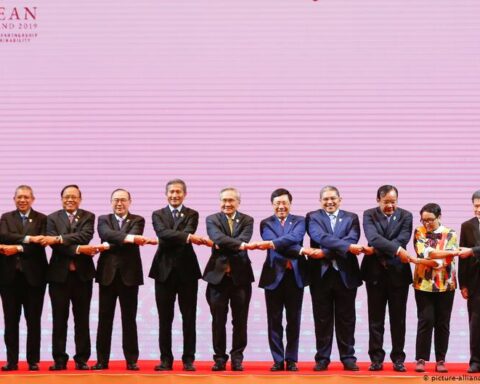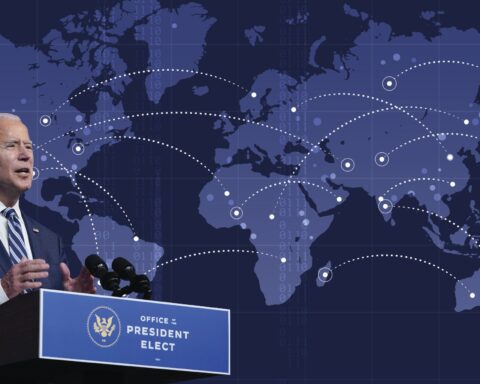On the west side of the Pacific, many Chinese closely followed the extended, exciting, and exhausting election process that brought Biden to the stage. Under the Trump administration, U.S.-China relations plummeted in an unprecedented way. After Trump leaves office, what will Biden bring to the U.S.-China relationship?
- Biden and the World – Part 1 Keeping U.S.- China Strategic Competition Under Control
- Biden and the World – Part 2: Opportunities for Africa in a U.S. Diplomatic Reboot
Because domestic issues—such as fighting the pandemic, revitalizing the economy, and mending social, ethnic, and political divisions—are so urgent, an international agenda may not be Biden’s immediate policy priority. Further, in light of the recent bipartisan U.S. consensus on China as a strategic competitor, both the motivation and potential for a change in China policy seem limited.
- Biden and the World – Part 3: A Chance for Europe to Pursue Greater Autonomy with U.S. Support
- Biden and the World – Part 4: Biden Can Restore Balance for Democracies
Nevertheless, Biden has the opportunity to improve, if he chooses, the deteriorating U.S.-China relationship, which is essential not only to the two countries, but also to the world. Without U.S.-China cooperation, international institutions such as the United Nations, the WTO, and the WHO cannot function.
- Biden and the World – Part 5: The Challenge of National Reconciliation and Multilateralism
- Biden and the World – Part 6: Biden Knows Central Europe and It Knows Him
Transnational challenges such as climate change, COVID-19, financial-system stability, and nuclear proliferation cannot be managed. It is also more difficult to coordinate regional security issues in Afghanistan, Iran, and North Korea.
- Biden and the World – Part 7: Japan – USA; Renewing International Cooperation
- Biden and the World – Part 8: Lingering Challenges in the U.S.-ASEAN Strategic Partnership
Even in these arenas where interests overlap, it is not easy for the United States and China to cooperate. A seemingly accelerating power shift, an exaggerated ideological competition, a securitization of economic interdependence and technological innovation, a downward spiral of public opinion, and an increasing psychological anxiety all contribute to the strategic rivalry.
- Biden and the World – Part 9: Furthering the Economic Prosperity and Stability of the Gulf
- Biden and the World – Part 10: Expect a Rebalanced U.S. Middle East Policy
Biden is regarded as more predictable and rational, and his national security team will likely be more professional, which could be good news for bilateral relations. But his inveterate policy preference for exporting liberal ideology, human rights, and democratic peace theory could well add to the volatility of bilateral relations. The traditional statecraft of prudence, reassurance, and self-restraint are still essential. If U.S-China strategic competition is inevitable, both sides need to keep it under control and on the right track, and cooperate whenever possible.
Yu Tiejun
Vice President, Institute of International and Strategic Studies, Peking University (China)





